Preparing for the Future of the Music Business
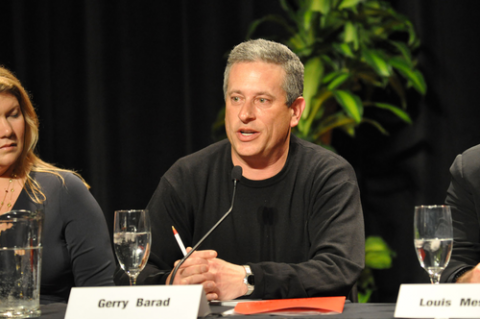
Gerry Barad, chief operating officer of Live Nation global touring
Photo by Phil Farnsworth

Ray Waddell, <i>Billboard</i> magazine
Photo by Phil Farnsworth
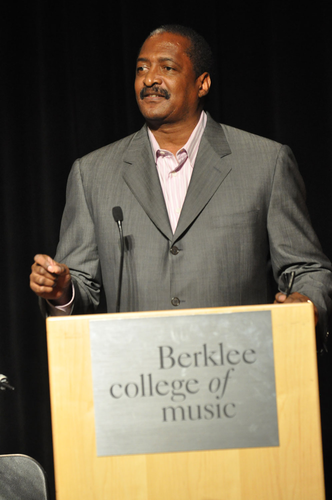
Mathew Knowles, manager, Beyoncé
Photo by Phil Farnsworth
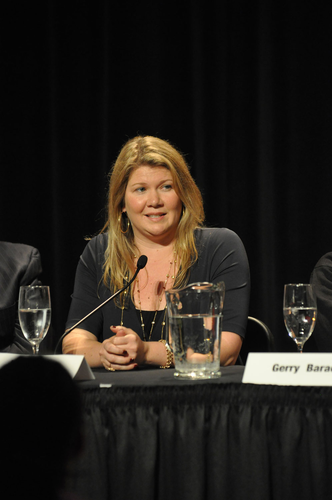
Marcie Allen Cardwell, CEO, MAC Presents
Photo by Phil Farnsworth
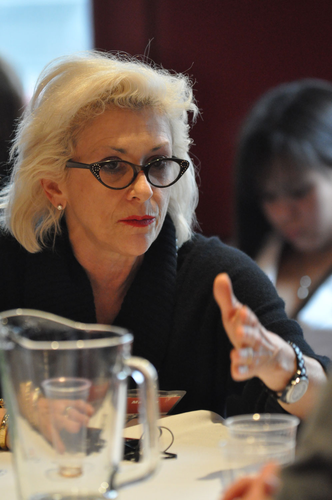
Marsha Vlasic, senior VP of concerts, International Creative Management
Photo by Phil Farnsworth
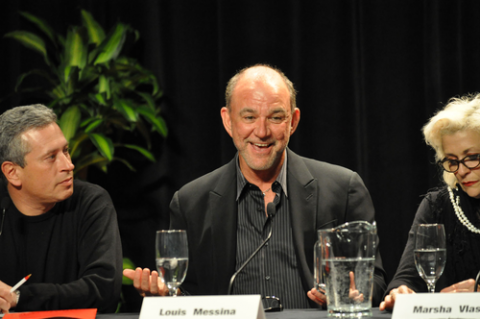
Louis Messina, president/CEO, the Messina Group
Photo by Phil Farnsworth
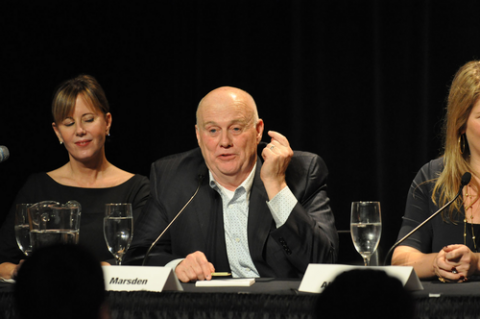
Dave Marsden, senior VP, director of concerts, Live Nation
Photo by Phil Farnsworth

Jeff Dorenfeld, associate professor in the Music Business/Management Department, moderated the panel.
Photo by Phil Farnsworth
Is the music industry recession-proof? That was the implicit question facing the distinguished panel of guests at the latest Envisioning 21st Century Music Business Models session, held at Berklee March 26.
The answer, of course, is that it is not. Album sales are way down, and several panelists noted that their artists are slashing some ticket prices to accommodate budget-conscious fans. But believe it or not, the participants said, there is plenty of good news.
"History has told us that in a bad economy, entertainment has done well," said Gerry Barad, chief operating officer of Live Nation global touring, who spoke about his client U2's commitment to capping ticket prices.
Moderator Ray Waddell, who covers the concert industry for Billboard magazine, seconded the notion that music fans will continue to put a premium on seeing their favorite act live. "You can take an album home," he said. "But the concert experience, when it's magic, you keep it in your heart forever."
With record sales dwindling—of the 37,000 albums released in a year, less than 1 percent make a profit, Mathew Knowles pointed out—creative marketing and the development of alternative revenue streams have never been more critical. Publishing and touring sit at the top, said Knowles, whose daughter, Beyoncé, happened to be kicking off her current tour in Edmonton that night. Sponsorships and merchandising come next, with album sales typically bringing up the rear.
Marcie Allen Cardwell, a Nashville entrepreneur whose company negotiates major tour sponsorships, told an amusing story about how she'd orchestrated a multi-million-dollar deal with Jeep on behalf of Tim McGraw and Faith Hill, after hearing the couple talk about how they, uh, consummated their relationship in an old Jeep. Sponsorships, she said, were "the big elephant in the room," something no one in the industry wanted to talk about, until recently: "Now, we're much more of a partner."
But such superstar leverage is "an entirely different business" from the day-to-day grind of the vast majority of performing acts, said Marsha Vlasic, a festival packaging innovator who was instrumental in launching OzzFest and the H.O.R.D.E. tour and is now a senior vice president in charge of concert touring for the talent agency ICM. She offered the example of one of her clients, the British rock band Muse, who has been plugging away for stardom for 14 years and will open for U2 this year.
Several panelists voiced their ongoing concern about the ticket resale market, which amounts, in the words of Taylor Swift and Kenny Chesney concert promoter Louis Messina, to "someone stealing their art and reselling it." But when Barad asked for a show of hands on who would sell a $55 U2 ticket if they were offered a thousand bucks for it, dozens of hands shot up.
"Well, that's my lesson in human nature," he joked.
Several students asked about how to get started in the business. How should they capitalize on digital marketing tools? If a new band has a certain amount of seed money, how best to spend it? And what about the instrumentalists who audition for tours like Beyoncé's—how do they ensure their own security?
In the brave new world of downloads and social networking, said Dave Marsden, who books all the major local venues for Live Nation New England, one piece of advice for a new band would be to ignore the Live Nations of the world. The fact that such independent tools have been established, "that's the great news," he said.
Knowles agreed, rounding out the session by asking all of the aspiring artists in the room to stand up. Then he did the same for other professions: songwriters, producers, videographers, attorneys, managers, promoters, publicists.
Take a look around, he advised: "You think the answer is with us, when the answer is in this room."
